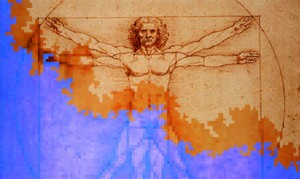Community
August 20, 2014
Upcoming CFPs and DH Events
LIBERAL ARTS SCHOLARSHIP AND TECHNOLOGY SUMMIT
Penn State is hosting its annual Liberal Arts Scholarship and Technology Summit (LASTS) next month, an event that brings together liberal arts faculty, graduate students, librarians and education technologists to share and explore digital pedagogy and scholarship. Co-sponsored by the College of the Liberal Arts and the University Libraries, the event includes workshops, presentations, breakout sessions, and featured keynote speakers.
LASTS will take place on Friday, September 12 and Saturday, September 13 in the Paterno Library’s Foster Auditorium.
If you would like to participate, please see our current call: http://sites.psu.edu/lasts/present/
BIRDS-OF-A-FEATHER GATHERING, SYDNEY, AUSTRALIA
Call for Proposals
Research Foundations for Understanding Books and Reading in the Digital Age: Emerging Reading, Writing, and Research Practices
An INKE-hosted Birds-of-a-Feather Gathering
8 December 2014 | State Library of New South Wales | Sydney, Australia
Proposals due: 15 September 2014
Digital technology is fundamentally altering the way we relate to writing, reading, and the human record itself. The pace of that change has created a gap between core social/cultural practices that depend on stable reading and writing environments and the new kinds of digital artefacts – electronic books being just one type of many – that must sustain those practices now and into the future.
This gathering explores research foundations pertinent to understanding new practices and emerging media, specifically focusing on work in textual and extra-textual method, leading toward:
· theorizing the transmission of culture in pre- and post-electronic media;
· documenting the facets of how people experience information as readers and writers;
· designing new kinds of interfaces and artifacts that afford new reading abilities;
· conceptualizing the issues necessary to provide information to these new reading and communicative environments;
· reflecting on interdisciplinary team research strategies pertinent to work in the area;
· and much more.
Presentations addressing these and other issues in relation to emerging and/or transforming (digital) infrastructures, in regional, national, and international contexts are welcome.
We invite paper proposals that address these and other issues pertinent to research in the area. Proposals should contain a title, an abstract (of approximately 250 words, plus list of works cited), and the names, affiliations, and website URLs of presenters; fuller papers will be solicited after acceptance of proposals, for circulation in advance of the gathering to registered participants. We are pleased to welcome proposals in all languages in which our community works, and note that the chief working language of past gatherings has been English. Please send proposals on or before 15 September 2014 to Alyssa Arbuckle at alyssaarbuckle@gmail.com.
CALL FOR CHAPTERS: READING MODERNISM WITH MACHINES
From data mining and visualization to mapping and topic modeling and beyond, digitally enhanced studies of literature and culture offer a series of computational methodologies for use in literary and cultural criticism. Using these approaches, scholars can ask new questions of literature and culture, while also intervening in existing debates. And with the publication of a variety of anthologies, handbooks, and treatises addressing the Digital Humanities in general, we now have the opportunity to focus attention on specific periods and movements in literary and cultural history. Reading Modernism with Machines aims to bring together the most rigorous and exciting modernist criticism to have been conducted using computers.
Each submission should offer a case study of modernist literary and cultural analysis conducted using a computational approach. While methodologies should be outlined, the majority of each submission should be reserved for humanistic discussions, which should be based on, or supplemented by, any electronic analyses. Submissions will be judged based on 1) the innovation and sophistication of the digital tools used in the analysis, 2) the essay’s broader impact on modernist studies, and 3) the degree to which computational analysis and literary/cultural interpretation merge cohesively.
Submissions: Initial proposals of ~500 words are due by September 31st, 2014
(Where appropriate, sample graphics, tables, tools, or datasets may also be submitted with proposal.)
Final submissions of ~6,000 – 8,000 words are due by January 31st, 2015
Submissions should be sent to James O’Sullivan (jco12@psu.edu) and Shawna Ross (smross3@asu.edu)
NEW PROJECT: GRADUATE TRAINING IN THE 21ST CENTURY
MediaCommons and #Alt-Academy have just launched a new project, Graduate Training in the 21st Century, which focuses on the challenges, the potential, and the pragmatics of the graduate school years that precede the move into one of many academies.
Its editors, Melissa Dalgleish (York University) and Daniel Powell (King’s College London and University of Victoria), are especially interested in the changes to graduate education that are already taking place, or that should take place, in response to the proliferation of post-PhD pathways.
The project’s front page can be found here: http://mediacommons.futureofthebook.org/alt-ac/cluster/graduate-training-21st-century, while the longer introduction can be seen here: http://mediacommons.futureofthebook.org/alt-ac/pieces/building-alternative-academy.
We are seeking contributors to our first cluster of essays, entitled “Beyond the Proto-Monograph: New Models for the Dissertation.” This cluster seeks to explore how the prototypical graduate project in the humanities—the dissertation—is changing in the face of the digital turn, shifting job markets, and new visions for the academy. The call for papers can be found here: http://mediacommons.futureofthebook.org/alt-ac/pieces/call-papers-beyond-proto-monograph-new-models-dissertation
We also welcome proposals or contributions on any aspect of graduate training, higher education reform, and post-degree careers, especially from current graduate students. We can be reached at gradtraining21c@gmail.com.
